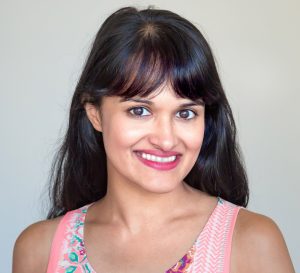person
Zara Rahman

Zara Rahman was a Non-Resident Fellow at the Digital Civil Society Lab (2019-2020, 2020-2021).
Zara is a Berlin-based researcher and writer whose interests lie at the intersection of power, technology and justice. Her most recent work focuses on the role that technology is playing in shaping our identities and our sense of selves and each other, and has written about this through the lens of immigration, refugee rights for the Rohingya in Bangladesh, and more broadly, the limits of digital data in shaping our identities.
Over the past decade, her research has focused on supporting the responsible use of data and technology in advocacy and social justice, working with activists and organisers from around the world to ensure context-driven and thoughtful uses of tech and data. She is currently the Deputy Director at The Engine Room, an international non-profit organisation supporting civil society to use tech and data more effectively and strategically in their work.
She was a 2016/17 fellow at Data & Society, where she worked on creative and artistic ways of boosting critical data and tech literacy, and she recently concluded a 2-year fellowship at digitalHKS at the Harvard Kennedy School, where she worked on understanding the origins of certain identification technologies.
Her past work has included campaigning for an access to information law in Spain, investigating the impact of open data in the extractive industries in the Middle East during the uprisings in 2011/12, and supporting data literacy efforts with civil society and journalists across the world with School of Data. She also sits on the Advisory Committee of CREA, a feminist human rights organisation based in India, and she writes about digital policy and technology in Bangladesh for Global Voices.
Fellowship Impact
In Zara Rahman’s eyes, civil society is not paying enough attention to the risks posed by DNA testing and the growth of DNA databases. These tests and databases as technologies don’t get attention in civil society because their impacts are not directly observed; for Rahman, this means viewing the systems holistically. One way she says people can become increasingly aware of and therefore interested in these processes is by understanding that DNA databases could impact members of their unborn families, painting them as a generational issue and threat. Indeed, this multi-generational aspect is helpful to get people thinking about how other forms of data are also relational.
To promote these ideas, Rahman is finalizing a Zine covering the basics for members of civil society who don’t necessarily have time to dive deeply into such totally new topics. A time of many new adventures, Rahman will also be serving on the advisory board of new organization A People’s Guide to Tech. Her other projects during the course of the Fellowship include multiple articles, a podcast, and providing evidence for the German parliament on technology and human rights issues.
